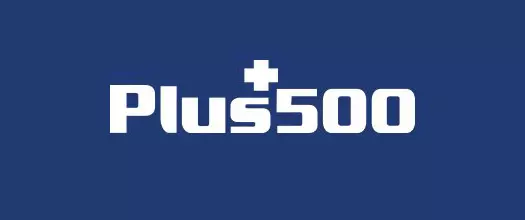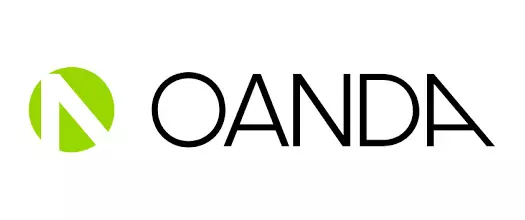- Jump to:
- Main features of the best USA Forex brokers
- Forex Legislation
- Financial Regulators
- Payment Methods
- Trading Software
- Mobile Trading
- FAQ
Our team of expert traders has tested many regulated and trustworthy Forex brokers that accept traders from the United States and has compiled a list of the very best among them. Each broker operating in the United States received a quality score based on several factors, including its Trustpilot rating, regulation, fees and commissions, available trading platforms, customer service, and more.
 Plus500 USThis content applies only to Plus500 US and clients from the United States. Trading futures involves the risk of loss.
Plus500 USThis content applies only to Plus500 US and clients from the United States. Trading futures involves the risk of loss. eToro50% of retail investor accounts lose money
eToro50% of retail investor accounts lose money Oanda72% of retail CFD accounts lose money
Oanda72% of retail CFD accounts lose money Charles Schwab
Charles Schwab WeBull
WeBull Forex.com77.7% of retail investor accounts lose money
Forex.com77.7% of retail investor accounts lose money
Below you can find a comprehensive comparison table of Forex brokers for traders in the United States. We rank them according to several factors, including regulation, spreads and commissions, Trustpilot rating, trading instruments, trading platforms, and deposit and withdrawal methods.
Our team has thoroughly evaluated all brokers listed below using TradingPedia’s exclusive methodology.
Main Features of the Best US Forex Brokers
- Brand
- Trading platforms
- Minimum deposit
- Regulations
- Trading instruments
- Spreads
- Leverage for Forex CFDs
- Leverage for Crypto CFDs
- Leverage for Indices CFDs
- Deposit methods
- Withdrawal Methods
- Commission per Lot
- Contact details
The United States of America has the world’s largest economy by nominal GDP and net wealth and is home to the biggest stock exchanges, the New York Stock Exchange and Nasdaq. However, Forex traders based in the United States may find it difficult to open an online trading account because only a few brokers accept US clients. Some believe that Forex trading is illegal in the country; this is not true-it is simply far more regulated than in other jurisdictions.
When considering the Forex market in the United States, it is important to remember that the country is one of the largest in the world, with an exceptionally diverse population and workforce. It boasts the most powerful and technologically advanced economy, producing computers, pharmaceuticals, and medical, aerospace, and military equipment. The top sectors contributing to GDP include trade, manufacturing, oil and gas production, and transportation. Moreover, the US dollar is the most traded currency in the world and is the preferred reserve currency.
The strict regulation of the financial industry in the US has driven away many brokerages over the past decade. As a result, only a handful of firms now work with US-based clients. Of course, the foreign exchange market remains as attractive to traders as ever – more than $5 trillion is traded on average every single day.
US Forex Legislation
Many less-experienced, non-professional traders believe that trading on the foreign exchange market is banned in the United States of America. This could not be further from the truth-access to the Forex market is not prohibited in any way. On the contrary, traders can easily buy and sell foreign currencies without having to comply with any special restrictions, other than the standard taxation rules that apply to everyone in the country. However, the operations of Forex brokers are heavily monitored and strictly regulated by US authorities.
In order to provide trading services to US-based clients, Forex brokers must be properly registered and licensed in the country. This may sound quite reasonable-after all, brokers in Europe, for instance, also apply for licenses from their respective regulatory authorities. In the US, however, the capital requirements are so high that only a handful of firms can afford to operate legally. These rules were introduced in 2010 with the Dodd-Frank Act, which targets practically the entire financial services industry in the country.
Proposed by President Obama’s administration in 2009, the Dodd-Frank Wall Street Reform and Consumer Protection Act was enacted as a US federal law by Congress in 2010. It aimed to reform the financial regulatory system in the aftermath of the financial crisis of 2007-2008. The law is regarded as the largest and most comprehensive overhaul of the financial regulatory system since the reforms that followed the Great Depression in the 1930s. It is a complex piece of legislation that includes 16 major areas of reform, one of which concerns the trading of foreign currencies.
The Dodd-Frank Act contains the core rules governing Forex trading. Among these are caps on leverage-it is 1:50 for major Forex pairs and 1:20 when trading exotic pairs. The current rules also restrict hedging-a strategy in which traders open two positions on the same currency pair simultaneously to offset potential losses. Instead, the so-called first-in, first-out (FIFO) model is applied.
Another rule, unique to the US, is that residents must file tax returns-60% of profits are deemed capital gains and taxed at 15%. The remaining 40% may also be taxed, depending on the trader’s income bracket.
Last but not least, the capital requirements for Forex brokers have driven away most firms since the enactment of the Dodd-Frank Act. Brokers must obtain an operating license and maintain a security deposit of $20 million. By comparison, brokers in Europe are required to hold capital of only $100,000 to $500,000. Clearly, the difference is huge and, as a result of these tough requirements, most brokers chose to exit the US market after 2010.
US Financial Regulators
The Dodd-Frank Act created several new regulatory bodies, each with jurisdiction over a specific sector of the financial services industry. Two main institutions now oversee the foreign exchange market in the US: the Commodity Futures Trading Commission (CFTC) and the National Futures Association (NFA).
All brokers that intend to offer Forex trading to US-based clients are required to register with the CFTC and become members of the NFA. The CFTC is an independent agency of the US government, established in 1974. It regulates the US derivatives markets, including futures, swaps, and certain kinds of options. The NFA, meanwhile, is a self-regulatory organization under the CFTC and monitors the trading of Forex pairs, among other products.
Another influential agency, the Securities and Exchange Commission (SEC), does not have authority over the Forex market because Forex pairs are not considered securities. Additionally, some brokers in the US are regulated by the Financial Industry Regulatory Authority (FINRA), a private corporation that acts as a self-regulatory organization.
US Forex Payment Methods
Forex traders in the US can benefit greatly from the fact that they can register their online trading accounts in their national currency, i.e., the US dollar (USD or $), without having to pay additional currency conversion fees. Practically all Forex brokers in the US, as well as most brokers around the world, process payments in USD.
In addition, all brokerages operating in the country accept credit cards, which are the single most popular payment method in the US. According to statistical data for the past few years, around 78% of all online payments in the country have been made via a credit card, followed by e-wallets at 18%, prepaid cards (2%), mobile payment services (1%), and bank transfers (1%). The most widely used credit card brands are Visa, Mastercard, American Express (Amex), Discover, and Diners Club International.
Of course, all reputable Forex brokers online will support at least one or two credit card types-usually Mastercard and Visa. Deposits via these cards are straightforward, almost instant, and very secure. They rarely incur any fees. Withdrawing profits to a credit or debit card, however, may cost a percentage of the transferred amount (up to 4%-5%). These transactions may take up to three or four business days to complete.
Many traders prefer alternative payment methods such as digital wallets, and the most popular e-wallet in the United States is PayPal. It can be used for deposits and withdrawals on the websites of most Forex brokers-transactions are instant, completely secure, and affordable. Another e-wallet available in the US is Skrill, a London-based e-commerce and money-transfer business. In addition, US-based traders can opt for more traditional payment methods such as ACH electronic transfers, wire transfers, and checks.
Popular Trading Software in the USA
US-based Forex traders should consider several factors when choosing a suitable online broker. First, the firm should offer Forex trading, low spreads and competitive pricing, convenient payment options, and a fast, reliable software platform. The choice of software is essential, as the platform facilitates the actual trading on the foreign exchange market. After all, Forex is decentralized and trading does not occur on a single exchange – instead, it takes place on a global, interconnected network of computers and trading platforms.
Some of the largest Forex brokers currently offer their clients access to proprietary software. Such platforms are designed for the specific types of trading provided by a particular broker. They often come with state-of-the-art features and advanced trading tools for professional traders. Additionally, some proprietary platforms provide professional analyses of the markets and other analytics.
However, virtually all online brokers also allow their clients to use third-party software solutions. Such platforms can be used free of charge as long as traders register an account with a broker. Probably the most popular are MetaTrader 4 and MetaTrader 5, software developed by the Russian company MetaQuotes Software. The first platform, MT4, was released in 2005 as a dedicated retail Forex trading system for traders of different nationalities, knowledge, and experience levels. Just a few years later, the developer released MT5, a system focused on CFD, futures, and stock trading.
While the two platforms are similar in appearance, they serve different purposes – MT5 is considered a multi-asset trading platform that is faster and more efficient than MT4. Also, whereas MT4 is suitable for Forex trading only, MT5 offers access to both centralized and non-centralized financial markets. Other popular software platforms include cTrader, NinjaTrader, TradingView, and more.
Mobile Trading in the USA
Mobile phones are increasingly popular among US consumers, who now shop, play games, and access entertainment content from their smartphones. In fact, many people prefer to do almost everything on their phone or tablet rather than on a desktop or laptop computer. More than 80% of Americans own a smartphone, and roughly one in five adults is a ‘smartphone-only’ Internet user.
Compared with most of Asia, the US is not as dependent on smartphones and related technology – mobile payments are not particularly popular among American users, whereas in China and India they have exploded in recent years. Still, mobile penetration in the US is incredibly high, with iOS devices ranking first in popularity, followed closely by Android phones and tablets.
Mobile devices are now preferred for Forex trading as well, as traders can instantly access their accounts and manage open positions in response to fluctuating prices, trends, and economic news received directly on their phones. Deposits and withdrawals are also available on mobile, further enhancing the trading experience.
To make the most of a mobile trading platform, however, traders need to ensure they use a stable Wi-Fi or 4G connection. Once they have chosen a broker, they can download the firm’s app to their device – trading apps are usually available free of charge from Apple’s App Store or Google Play. They then simply need to sign up for a live account, make a real-money deposit, and start trading.









